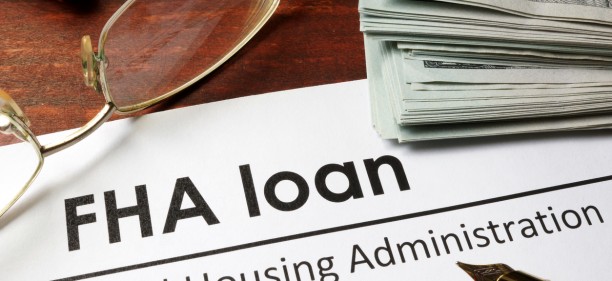
01 Jun Can I, and Should I, Use an FHA Loan for Investment Purposes?
No. Well, maybe. Yes, if done a certain way. A loan insured by the Federal Housing Administration (FHA) is buyer-friendly, and it could be the ideal way for a relatively new investor to start their long-term path to wealth. First I’ll explain some of the benefits of an FHA loan, and then I’ll point out how to legitimately use it as an investor. Keep in mind that the FHA does not lend the money; a mortgage lender loans the money and is insured by FHA provided that the guidelines are met.
Benefits
- The typical FHA loan, known as an FHA 203(b) loan, involves a 3.5 percent down payment, and the entire down payment can be a gift from a family member.
- The minimum credit score for a 3.5 percent down payment is 580. People with a credit score between 500 and 579 could still qualify for an FHA loan if they put down 10 percent.
- The loan can be for the purchase of a one- to four-unit residential structure.
- Competitive interest rates and generally lower fees than many other types of mortgage loans.
- A person who filed Chapter 7 liquidation bankruptcy as little as two years prior could qualify for an FHA loan if they re-established good credit and has demonstrated an ability to manage their financial affairs.
- A person who was foreclosed could qualify for an FHA loan as little as three years after the foreclosure.
- Seller concessions could be up to 6 percent of the purchase price.
- Instead of having at least three lines of credit, the FHA usually requires only two lines of credit for otherwise qualified applicants.
- The FHA 203(k) renovation loan allows a borrower to receive a loan for both the purchase and for the renovation of a one- to four-unit structure.
- FHA loans are assumable.
- An FHA loan can be refinanced into another FHA loan, even if the borrower has moved out of the residence. The FHA streamline refinance is one of the simplest loans to close, as it requires no income verification, no credit score verification, and no appraisal. What matters is that the borrower has made their mortgage payments on time.
- The FHA Kiddie Condo loan allows parents to be co-borrowers for their young adult children to buy a home. If you are a new, young investor who needs help qualifying for a loan, this could be a great path to get started.
Using the Loan for Investment Purposes
An FHA borrower must be in the home within 60 days and live in the property full-time for a minimum of one year. I have heard a couple of aspiring investors muse about using an FHA loan to buy a property that they do not ever plan to live in, and to do that would be fraud, plain and simple.
So, how can someone legitimately use an FHA loan for investment? Below are a few options.
1. Purchase a 2-4 unit residential property with the 203(b) loan. Live in one of the units for at least a year. The rent from the other apartments will cover most, if not all, of the mortgage payment. When you do move out after a year or more, the property will produce an even higher cash flow. For a new investor with limited resources, this is a wonderful way to acquire a property with strong cash flow. Imagine paying off the entire loan in about 15 years by taking some of the extra cash flow and putting it toward the mortgage. At the very least, I suggest that extra mortgage payments be made until the Private Mortgage Insurance (PMI) is no longer required, thus creating additional cash flow.
2. Use the 203(k) renovation loan to purchase a 2-4 unit residential property at a discount. If a property needs work, it can likely be bought at a discount to the fair market value. Live in one of the units as mentioned above. The property could be kept in your portfolio for years (which I recommend) or sold after a year.
3. Use the 203(k) renovation loan to purchase a single-family fixer-upper and sell it for profit later. This is what I call a long-term flip. Live in the home for at least a year and then sell it for a profit. I strongly recommend living in the home for at least two years to pay $0.00 in capital gains taxes. Per the Taxpayer Relief Act of 1997, if a person sells their primary residence and they lived in the home for at least two years out of the past five years, then they owe no capital gains taxes on the first $250,000 in capital gains ($500,000 if married). Since you have to live somewhere, why not live in a nice home, create equity, and sell it for profit after a couple of years?
Tai DeSa is a graduate of The Wharton School of the University of Pennsylvania. He became a full-time real estate investor in 2004 after serving in the U.S. Navy. Tai has made colossal mistakes in investing (and learned some things along the way). He has owned over 200 properties with various investment partners, and he has been involved in over 200 more transactions as a real estate broker. Tai and his wife Amira enjoy hunting for investment properties. Contact Tai if you need some consultation on real estate investing. Tai may be available for coaching and speaking engagements on a variety of real estate topics. Send an email to tai@investandtransform.com. Tai is passionate about helping investors make money and avoid mistakes.






No Comments